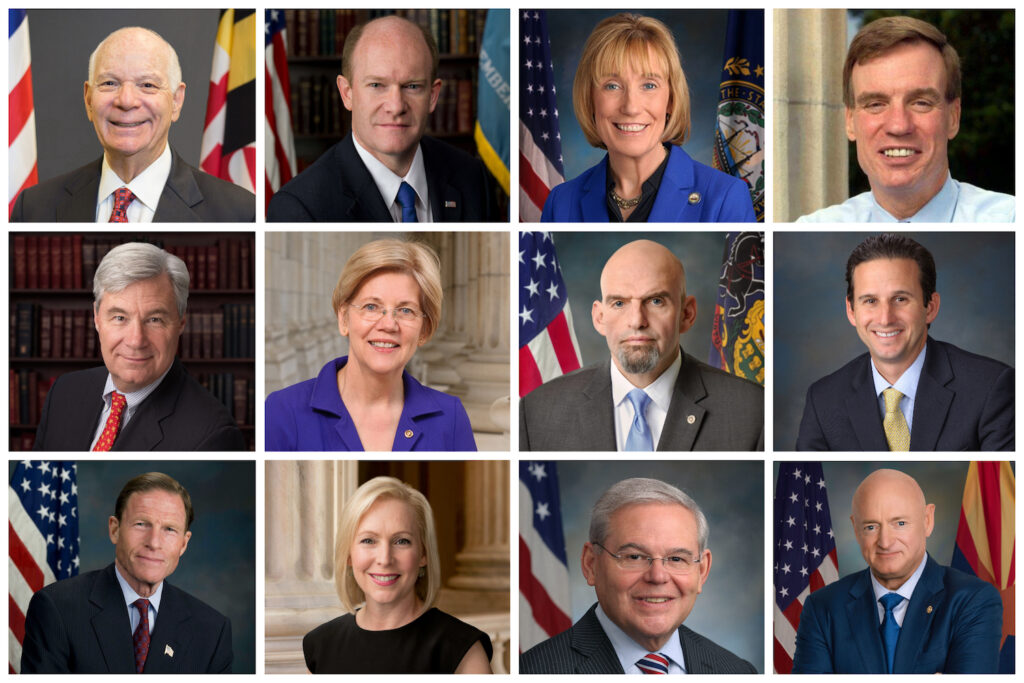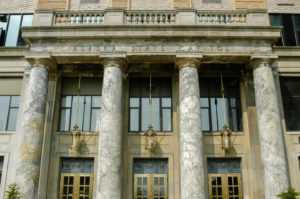Elizabeth Warren among 12 U.S. senators who oppose school choice for others yet choose private schools for their own kids
At least 12 U.S. Senators oppose school choice policies despite discreetly sending their own children to costly private schools, leading to charges of hypocrisy and elitism by critics.
Sen….

At least 12 U.S. Senators oppose school choice policies despite discreetly sending their own children to costly private schools, leading to charges of hypocrisy and elitism by critics.
Sen. Elizabeth Warren, D-Massachusetts, is perhaps the most well-known among them.
Although the 10-year senator has claimed to be “#PublicSchoolProud,” she sent her own son to Kirby Hall School, a private college preparatory institution, where tuition ranges from $10,000 to $19,000 annually.
When a school choice supporter confronted her about it, Warren flatly claimed to have sent her kids to public school, which was only partially true, as an aide later clarified.
“Warren was so ‘#PublicSchoolProud’ that she decided to send her son Alex to expensive private schools for the majority of his K-12 education,” panned Corey DeAngelis, executive director of the Educational Freedom Institute.
At least 11 other U.S. senators, outlined below, have also opposed school choice despite choosing a private education for their children, including Sen. John Fetterman, D-Pennsylvania, Sen. Richard Blumenthal, D-Connecticut, and Sen. Kirsten Gillibrand, D-New York.
“These politicians believe only the most advantaged people, like themselves, should have school choice,” DeAngelis told The Lion.
He claimed such politicians are “hypocrites [who] are basically saying, ‘Let them eat cake’ to low-income families who are desperate for more education opportunities.”
Robert Enlow, president and CEO of EdChoice, agrees.
“It’s quite rich when people have choices, particularly those who are wealthy, and then say, ‘Well we don’t want everyone to have those choices,’” Enlow told The Lion. “Let everyone have the same choices you had.”
If polling suggests growing support for school choice, even among Democratic voters, why do so many Democratic politicians oppose it?
DeAngelis suggests special interest groups, such as teachers’ unions, are to blame.
When it comes to school choice, “[Democrats] all of a sudden adopt a ‘pull yourself up by your bootstraps’ mentality,” DeAngelis says. “For just about everything else, they are more than happy to have taxpayers foot the bill.
“Democrat voters support school choice, but unfortunately Democrat special interests like the teachers’ unions do not.”
The political left has also conflated the ideal of public education with traditional, locally zoned public schools, Enlow adds.
“At EdChoice, we 100% believe in the education of the public,” Enlow told The Lion. “We think everyone should have the ability to choose and be educated because anyone who’s educated is educated in the public interest.
“We think that’s a very different thing than traditional public schools that are based on zip code assignments, that are based on where you live, and that is built out of a system of redlining for years.”
Teachers’ unions and some others in the public school establishment often claim school choice will harm public schools, fearing a loss of students and, consequently, a loss of funding.
“Thats never been the case when you have choice,” Enlow explained. “Voluntary choice has always been a positive impact on our country.”
School choice may figure into the 2024 presidential election, as well, especially as its popularity has grown among so many registered voters.
Two noteworthy Republican presidential candidates Florida Gov. Ron DeSantis and Sen. Tim Scott, R-South Carolina – are both vocal proponents of school choice, DeAngelis notes.
“There’s no longer any excuse for any red states not to pass universal school choice,” he concluded. “Education freedom has become a GOP litmus-test issue, a political winner, and a moral imperative.”
In addition to Sen. Warren, the following 11 senators round out the list of those known to oppose school choice policies despite sending their kids to costly private schools.
Sen. John Fetterman, D-Pennsylvania
The Washington Free Beacon reported that Fetterman sends his children to Winchester Thurston School, a private college preparatory boasting of “educational innovation, rigorous academics, [and] scholarly standards.”
Tuition at Winchester Thurston is more than $34,000.
Sen. Richard Blumenthal, D-Connecticut
All three of Blumenthal’s sons graduated from Brunswick School, a college preparatory school that emphasizes “rigorous traditional learning, self-discipline, and character development.” Brunswick costs between $42,000 to $50,000 annually. His son, Matt Blumenthal, also went on to be a state Congressman.
Sen. Blumenthal himself also attended a college preparatory school in New York City and is one of the wealthiest members of the Senate with a net worth of over $100 million.
Sen. Kirsten Gillibrand, D-New York
Gillibrand described public schools as “a pillar of our democracy and a cornerstone of our economy.”
“Our education policies must start with the question ‘What do kids need?’ and public schools should serve as the center of our communities to provide those things,” she added.
However, Gillibrand apparently decided on a private school education for her own kids.
Records show that both of Gillibrand’s sons attended a private PreK-8 school and one attended Groton School, a private, college preparatory secondary school. Tuition at Groton is more than $46,000.
Sen. Sheldon Whitehouse, D-Rhode Island
Whitehouse graduated from St. Paul’s School, a highly selective college preparatory academy affiliated with the Episcopal Church.
His son attended St. George’s School, another Episcopal private institution, where tuition is approximately $60,000 a year. Whitehouse’s daughter attended Wheeler School, the Daily Caller News Foundation reported.
Sen. Mark Warner, D-Virginia
Warner has promoted public education both through his politics and his personal philanthropy, but sent all three of his daughters to a private school called Burgundy Farms School.
Burgundy charges between $35,000 to $40,000 per student. Warner is considered one of the wealthiest senators, with a net worth of over $214 million.
Sen. Bob Menendez, D-New Jersey
At the 2013 dedication of his namesake, the Robert Menendez Elementary School, Menendez said, “Let’s not forget that we have an enormous responsibility to invest in public education in every school, in every county, in every state. Nothing is more fundamental to the development of our children and to the future success of our nation than a quality education.”
However, when it came to the education and development of his own children, Menendez chose private school.
His son, Robert Menendez Jr., who also serves as a U.S. Congressman for New Jersey, graduated from The Hudson School, a private middle and high school. Menendez Jr. later served on its board of trustees. The school offers a “rigorous and relevant college-preparatory education,” an “interdisciplinary curriculum” and charges $27,000 a year.
Sen. Ben Cardin, D-Maryland
Cardin is a self-proclaimed advocate of public schools and openly rejected the idea of funding charter or private schools.
However, though Cardin calls himself a “proud graduate of Baltimore City Public Schools,” he actually attended Baltimore City College, a selective liberal arts college preparatory secondary school.
One of his children also attended Beth Tfiloh Dahan Community School, a private Jewish school, as well as Park School, a private, non-sectarian PreK-12 institution.
Sen. Mark Kelly, D-Arizona
Kelly described himself as “a product of public schools.”
“I know the value of a strong public education system,” he wrote on social media.
However, his daughter attended The Gregory School – formerly called St. Gregory College Preparatory School – a private school in Tucson, Arizona. Tuition at The Gregory School ranges between $14,550 and $20,550 per year.
Sen. Maggie Hassan, D-New Hampshire
Hassan vetoed a school choice bill because private school curriculum isn’t monitored by the Department of Education and doesn’t have “the same accountability standards as public schools.”
However, she sent her own daughter to Phillips Exeter Academy, a highly selective private high school that costs nearly $50,000 per student.
Sen. Chris Coons, D-Delaware
All three of Coon’s children attended Wilmington Friends School, a private, parochial school affiliated with the Quakers. Tuition for various programs ranges from $11,000 to $34,000. Sen. Coons himself graduated from a private college preparatory institution called Tower Hill School.
Sen. Brian Schatz, D-Hawaii
Both of Schatz’s children attend their father’s alma mater – Punahou School, a private college preparatory school founded in Hawaii by Protestant missionaries. The school costs $30,480 per student.
These senators are not the only prominent politicians accused of hypocrisy over their anti-school choice stances. At least 7 governors, from California to Connecticut, send their kids to private schools while standing publicly against education freedom.



